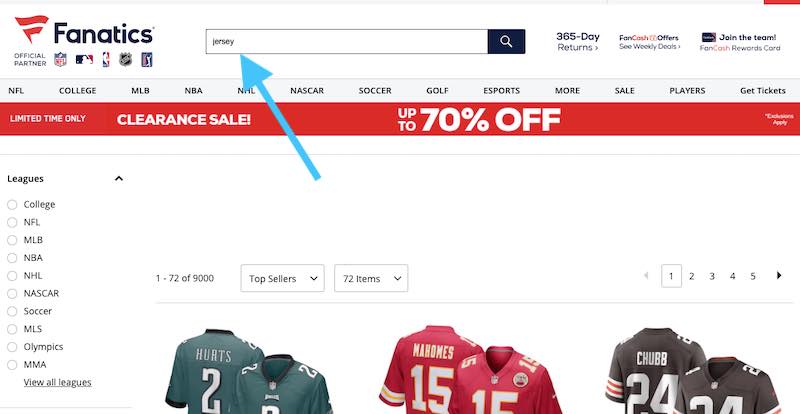Ecommerce site search is vital for navigation and conversions. Picking the right provider should be based on features, data, and measurability.
Some industry sources estimate that about a third of online shoppers will use site search.
Consumers who know what they want and search for it likely have more buying intent. SearchNode, a provider, has argued that a shopper who searches on-site is five or six times more likely to purchase than one who browses for products.
Regardless, search performance impacts an ecommerce site’s overall success. Thus online sellers —B2C, B2B, direct-to-consumer — should take care when selecting a service.
Here are a few tips to help you decide.
1. Relevant Results
Above all else, an ecommerce search engine should return relevant results. This is more difficult than one might think.
Almost no amount of machine learning and artificial intelligence will know a shopper’s intent all of the time, even after lots of queries.
For example, imagine a shopper searching for the phrase “ant” on a mass-market retailer’s website. The search results could include ant killer from Terro, a Vosker long-range cellular antenna with model number V-ANT-01, or an antique pink doll dress.
All of these products match the phrase “ant” in one way or another. Only one, however, is likely relevant to the searcher’s intent.
Even the most sophisticated search will likely require your company to establish rules to ensure relevant results. These rules might allow for misspellings of five or 10 letters or, conversely, allow for no misspellings, an exact match only.
When you vet a search provider, ask how it is configured and what can be done to ensure relevant results. Pick a service that presents your products well.
2. Synonym, Phrase Matching
Google has spoiled most searchers. The leading internet search engine is a master at natural language processing. Many shoppers who visit an online store now expect a similar performance level for synonym and phrase matching.
For example, a shopper who queries the phrase “detective hat” might expect the search to return fedoras or deerstalkers (the hat Sherlock Holmes wears in many movies) even when those product descriptions do not include a matching word.
Many search platforms allow a merchant to build synonym lists or libraries. When someone types “snow thrower,” the search service could check the synonym library and return results for “snowblower,” for example.
This is effective, but it takes time and effort to build and maintain synonym libraries.
Other search providers will build these libraries automatically using Google-like natural language processing. These providers make semantic connections on your behalf, recognizing that a “pullover” might be a “sweater.”
3. Behavior-based Results
Ecommerce site search should be a conversion machine, guiding shoppers to the products they need with mechanical reliability.
If every shopper were the same, the site search could always return the same products in the same order with the same picture. But shoppers are different. Each is unique, and it makes sense to serve them based on their behavior.
Take the example of Fanatics, the sports apparel site, which uses Algolia search. It can detect, for example, when a query for “jersey” means a shirt versus, say, items related to New Jersey Devils, a hockey team — and vice versa. The site carries both types of products.

Fanatics uses Algolia search. It can detect when a search for “jersey” means apparel versus items related to New Jersey Devils, a hockey team.
Look for an ecommerce search provider that can combine product information, shopper behavior, and machine learning to show results that will lead to sales conversions.
As you review potential offerings, ask about personalization, recommendations, and behavior-based results.
4. Analytics
Shoppers’ search behaviors can be a reliable source of helpful data. Knowing what visitors search for and how they react to the results can indicate how the search is working and the appeal of your product mix, including potential gaps in that mix.
Moreover, good search analytics offers insights into a shopper’s journey and helps identify problem areas across your site.
With this in mind, look for an ecommerce search provider with robust reporting. Think about the provider’s performance metrics and how they might impact your merchandising, navigation, and other decisions.
5. No Zero Results
The year 2021 may be the time to do away with “no results” or “zero results.”
Here’s an example. Imagine a shopper visits an apparel retailer’s ecommerce site and searches for “Tommy Bahama winter wear.”
If it doesn’t carry winter wear from Tommy Bahama, the site’s search platform might not return a result. A zero result could mean a missed sale.
Instead, try to return a similar result, such as “We don’t have Tommy Bahama winter wear, but we found these related items.”
Another approach could be to return results from the web. Thus an ecommerce site could return results from the web when a shopper searches for “Santa hats” if the site carried no such items.
In short, choose an ecommerce search vendor that offers flexibility in results pages.




